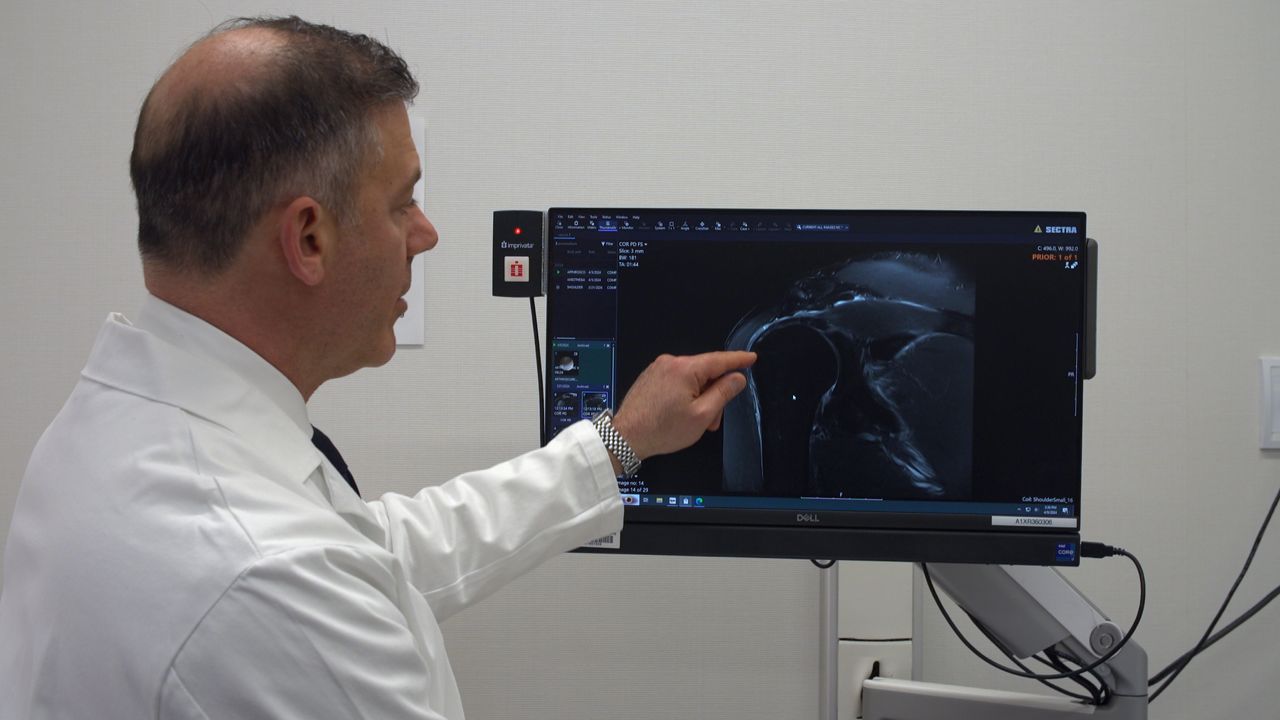Pickleball is the fastest growing sport in America, according to the Sports and Fitness Industry Association. The sport is credited with getting many Americans back into active lifestyles. While there are significant benefits to be had from playing the racket sport, it’s also important to make sure your body is ready for the rigors of the game. National Health Reporter Erin Billups looks at the health effects of the latest trend.
The bounce of a ball off a racket is an increasingly common sound in neighborhoods and sports clubs around the country.
“It was really, for me, like, a great way to socialize,” said Pamela Weinberg of Manhattan. “Instead of, just, like, going out for lunch or something like that, it was like a fun thing to be able to do, like outdoors with friends.”
Weinberg is one of 13.6 million people taking a crack at pickleball. The number of Americans playing the sport grew more than 200% over the past three years, according to the Sports and Fitness Industry Association’s annual report.
Dr. Joshua Dines is the medical director for Major League Pickleball and an Orthopedic Surgeon at the Hospital for Special Surgery. He sees how pickleball has become an accessible sport for various types of people.
“When I first started seeing patients, it was 60- and 70-year-olds who hadn’t done anything in a while,” said Dines. “Fast forward, it’s you know, I think people realized how fun it is, there’s a very low barrier to entry. It’s not expensive, it’s social. And now it’s every age group playing.”
Growing interest in the sport has led to a significant increase in sports related injuries, a recent study from the American Academy of Orthopaedic Surgeons looks at the impact on seniors - and estimates there will be a 123% increase in sport-related injuries among the elderly by 2040.
Dines has noticed the trend at his hospital too.
“Tennis you’ll play for, you know, a half hour, 45 minutes, maybe an hour once a week or something. Pickleball, it’s very fun,” said Dines. “Now we’re playing a racket sport for hours upon hours a week, and that just leads to overuse injuries [like] tennis elbow, sore shoulders, back injuries.”

The other type of injuries he’s seeing more of are the acute traumatic ones, a torn rotator cuff or what Weinburg experienced; she tripped while running backwards during a match.
“As I was falling, I was like, oh my God, if I don’t brace my wrist, I’m going to hit my head,” said Weinberg “I put my wrists out to break my fall and whatever I did was like the worst thing you could possibly do.”
Weinberg was rushed to the hospital, where she discovered she had broken both wrists.
“I had surgery on this wrist. And this wrist was just in a cast for six weeks. So, I mean, I couldn’t do one thing for myself. Nothing. Nothing. I couldn’t eat, I couldn’t hold a pencil,” said Weinberg.
Even with the rise in injuries, experts like Dines say the benefits of pickleball still outweigh the risks, particularly for older adults who are more prone to sedentary lifestyles. A North Carolina State University study found pickleball helps people 65 and older who play reach their recommended weekly dose of moderate to vigorous physical activity.
“Like we’re getting people who’ve been sitting on the couch doing nothing, making them active,” said Dines. “I think that’s a victory.”
The key is proper prevention. “Start slowly and even before you get on the pickleball court, just things to work on your balance, work on your fitness, your cardio, so that you’re in shape,” said Dines. “Go out for 10 or 15 minutes, start slowly, rest for a little, go out for another ten minutes and then shut it down. You know, take a day off. Listen to your body.”
Weinberg suggests getting a baseline of your health before entering regular play. She found out after her injuries that she had osteoporosis.
“I know a lot of people do get bone density tests. So that’s something that I would definitely recommend for people to get to get some kind of a baseline,” said Weinberg. She is now able to exercise regularly and says she’ll soon ease her way back on the courts.
“I really do miss it. And I think I probably will go back, at least in a mellow sort of a way with my family,” said Weinberg.



